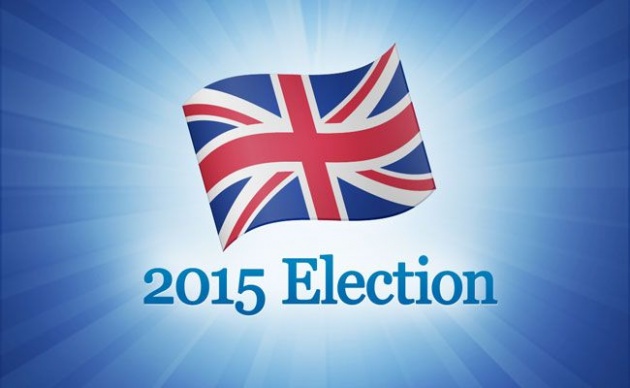
The 2015 UK General Election concluded without reports of any major unpleasantness and the Conservatives won 330 seats and Prime Minister David Cameron is going to stay in 10 Downing Street.
On the other hand without making any noise, Labour, the Liberal Democrats and UKIP have accepted their defeats and their leaders offered to resign from their posts.
This is something that could be only possible because of a strong faith in democracy, and that is why we consider Britain’s democracy a mother of democracy.
There are a total of 650 seats in the House of Commons, while all major parties had put forward candidates who were members of ethnic and Asians minorities to encourage them to take part in UK politics and ensure their real representation.
Among others there were 156 Asian candidates from different political parties who were also contesting these elections.
Although these elections were called historic, let’s look at them from the minorities’ perspective.
The number of minorities’ seats in the House of Commons has grown from 27 to 42, while 13 are Muslims and astoundingly 10 of them are Pakistanis. If we look at their backgrounds they all come from middle or lower middle class families. Had they been in Pakistan, none of them would qualify for a party ticket nor would they be elected.
The number of Pakistani British MPs continues to grow as seven of the previous members have been able to retain their seats, while three new members have also been elected. This number will be a strong presence and effective voice on the behalf of Pakistani people in the House of Commons.
Pakistani Prime Minister, Nawaz Sharif has not just congratulated David Cameron, but all the Pakistani British MPs too and has expressed his hope that they will play their role to strengthen bilateral relations with the UK government. Pakistanis are emotionally attached to Pakistan and as a matter of British Pakistani MPs whether they are in the European Parliament, House of Commons or House of Lords, they are on the forefront to protect Pakistan’s interests, regardless of any government.
These are of course joyous moments for Pakistanis and different people are happy for different reasons, but the British public and politicians feel no threats.
Mr Cameron has pledged to ensure that by the next election, at least 20 per cent of Tory candidates will be from ethnic backgrounds, and definitely the Pakistani candidates will also grow proportionately.
Doors of equal opportunities are open for everyone no one is discriminated against on the basis of their race or religion. Instead laws exist to protect everyone.
The brilliance of this country is that everyone can have an opinion and lead their life according to their creed and culture.
British society is very tolerant and sometimes Pakistanis take for granted its lenience. There are several misled Pakistanis who still think Britain is a Dar ul Harb (house of war), promote their hate agenda and are sometimes arrested for their obnoxious activities, but still their rights are never violated.
Even in the recent election some people campaigned to boycott it and ran organised campaigns against their local non-Muslim MPs without any fear. We cannot even imagine such activities by non-Muslims in Pakistan.
Mr Cameron recently said that Tories are the party of opportunity for people from all backgrounds who want to get on and anyone can make the most of their talent in this country.
He also said that the Conservatives will be the party to produce the first black or Asian Prime Minister, and I have no doubt about what he is saying.
We know how he promoted Saeeda Warsi to a senior minister’s position. She had lost the election in her own constituency, and is still a member of the House of Lords and now he has picked up Sajid Javid, the son of a bus driver as his new Business Secretary.
He is proud that Britain is a Christian country, and even Saeeda Warsi and several other non-Christians leaders are proud, and support Christian values – something which I think is only possible in a Christian country.
We cannot allow this in any Muslim country, particularly in Pakistan, where religious minorities are constitutionally barred from becoming president or prime minister of Pakistan.
This is despite minorities equally supporting Quaid e Azam in achieving Pakistan and even Quaid e Azam made it clear in his presidential speech to the constituent assembly that religion will have nothing to do with the business of state.
He set an example by appointing Jogendra Nath Manda as first Minister of Law, and Muhammad Zafarullah Khan as first Foreign Minister of Pakistan.
But unfortunately minorities are treated as second class citizens, their churches, temples, towns and villages are under constant attack and despite the Prime Minister’s statements, and Supreme Court’s order, the Pakistani government has failed to protect them.
They seem to lack the will, and there is no hope, which is why minorities are fleeing Pakistan.
Since we are talking about the UK’s election let’s talk about our election system. Earlier, on religious grounds we ousted minorities from mainstream politics through the separate electorate system and even though the joint electorate system was restored by General Pervez Musharraf, there is still no chance that a minority can be elected.
This is a very unfortunate situation which we have come to accept.
This is one of the challenges which political parties have to face and overcome to strengthen democracy and to build a strong Pakistan.
We will have to promote tolerance and nationalism and implement Quaid’s speech if we are really sincere about making Quaid’s Pakistan.
Just writing about minorities’ rights in our parties’ manifestos is not enough – we need to see it in practice. It is time to treat our minorities the way Britain treats its minorities.
It is the responsibility of politicians to make Pakistan a tolerant society and treat every citizen equally. If we want to make Pakistan a peaceful and tolerant society, then it has to start at political party level.
Political parties will have to attract and encourage minorities. They need to condemn discrimination against minorities and include it in their manifesto.
Pakistani minorities are suffering in every walk of their life, hatred against them continues to grow, and there is a great need to restore their faith in the Pakistani political system.
Rhetoric won’t work anymore as we are under the spotlight and the international community has raised its concern the treatment of minorities.
If a Christian country like Great Britain can be accepting of the minorities that have migrated there for a better future, then why are we scared of our minorities who belong to our land.



